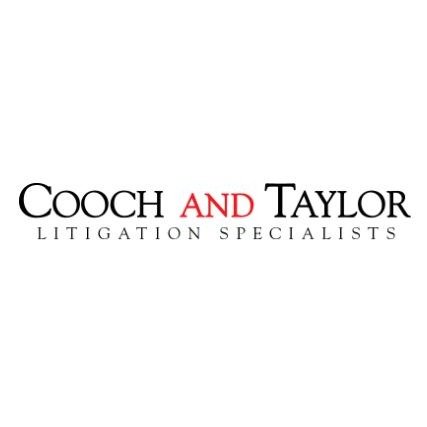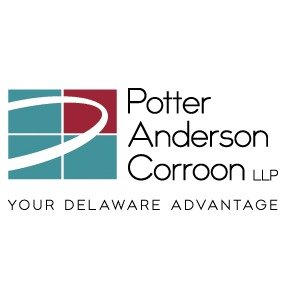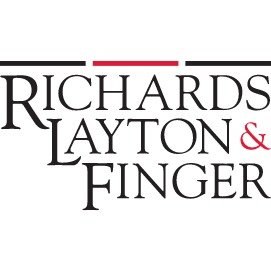Best Nonprofit & Charitable Organizations Lawyers in Delaware
Share your needs with us, get contacted by law firms.
Free. Takes 2 min.
Or refine your search by selecting a city:
List of the best lawyers in Delaware, United States
About Nonprofit & Charitable Organizations Law in Delaware, United States
Nonprofit and charitable organizations play a vital role in the social and economic fabric of Delaware. Organizations in this sector are formed for purposes like education, the arts, healthcare, animal welfare, humanitarian aid, and other charitable missions. In Delaware, establishing a nonprofit typically involves operating as a nonprofit corporation, applying for federal tax-exempt status, and complying with state laws that govern charitable activities. Many entities choose Delaware because of its business-friendly laws and well-established legal framework, but nonprofit organizations still have specific legal responsibilities and obligations distinct from for-profit businesses.
Why You May Need a Lawyer
Legal assistance is critical for both new and established nonprofits in Delaware. Here are some common situations where professional legal help is highly recommended:
- Forming a new nonprofit corporation and drafting bylaws
- Applying for tax-exempt status with the IRS and Delaware Division of Revenue
- Ensuring compliance with federal and state fundraising regulations
- Drafting or reviewing contracts, leases, and grant agreements
- Handling employment concerns and volunteer agreements
- Managing mergers, dissolutions, or transferring assets
- Responding to audits or investigations by governmental agencies
- Adhering to rules regarding the board of directors and governance
- Addressing conflicts of interest and ethical obligations
- Navigating intellectual property issues related to branding or content
An experienced nonprofit attorney can help ensure your organization is structured properly from the beginning, remains compliant over time, and avoids costly legal mistakes.
Local Laws Overview
Delaware has unique requirements and processes for nonprofit and charitable organizations:
- Formation: Nonprofits are created under Title 8 of the Delaware General Corporation Law by filing a Certificate of Incorporation with the Delaware Division of Corporations. The certificate must state the nonprofit purpose and any membership structure.
- Tax Exemption: Delaware nonprofits seeking federal tax-exempt status must apply to the IRS, usually under Section 501c3. To be recognized by the state, organizations must also file separate exemption applications for Delaware corporate income and franchise taxes.
- Charitable Solicitation: Delaware requires charitable organizations soliciting donations from residents to register annually with the Delaware Department of Justice’s Charitable Gaming and Solicitations Section, except for some exemptions.
- Governance: Delaware sets forth core governance obligations, including regular meetings, proper recordkeeping, and rules for board duties and conflicts of interest.
- Financial Reporting: Some nonprofits may need to file annual financial reports with Delaware or be subject to audits, depending on their activities and funding sources.
- Dissolution: Delaware law governs how nonprofits can dissolve, distribute assets, or merge with other entities, with court oversight when charitable assets are involved.
Understanding and fulfilling these obligations is essential to maintain good standing and protect your organization’s tax-exempt status.
Frequently Asked Questions
What is a Delaware nonprofit corporation?
A Delaware nonprofit corporation is a legal entity created under state law to operate for charitable, religious, educational, or similar purposes rather than to earn a profit. It has no owners or shareholders.
Do I need to register my nonprofit in Delaware if my organization was incorporated elsewhere?
If your organization intends to solicit funds or conduct activities within Delaware, you may need to register as a foreign nonprofit and comply with additional state requirements.
How do I apply for federal tax-exempt status?
After incorporation, you must file IRS Form 1023 or Form 1023-EZ and demonstrate that your organization is organized and operated exclusively for tax-exempt purposes under Section 501c3 of the Internal Revenue Code.
Do all charitable organizations need to register before fundraising in Delaware?
Most nonprofits that solicit donations from Delaware residents must register with the Charitable Gaming and Solicitations Section, although certain organizations like religious assemblies or small charities may be exempt.
Are donations to Delaware nonprofits always tax-deductible?
Donations are only tax-deductible if the nonprofit has obtained IRS recognition as a 501c3 tax-exempt organization. Donors may request the organization’s IRS Determination Letter as proof.
What corporate governance rules must Delaware nonprofits follow?
Nonprofits must have at least one director, hold regular board meetings, keep accurate minutes and records, and abide by their bylaws and conflict of interest policies.
Can a Delaware nonprofit pay its directors or officers?
While directors may be reimbursed for reasonable expenses, nonprofit law and IRS rules discourage paying directors for their board service. Officers may receive reasonable compensation if it is properly documented.
What happens if a Delaware nonprofit dissolves?
Upon dissolution, remaining assets must be distributed for charitable purposes as specified in the Certificate of Incorporation and consistent with state and federal law.
How often must I file reports with the state of Delaware?
Nonprofits must file an annual franchise tax report and may have additional filing requirements relating to fundraising, employees, or special activities.
Where can I find more information about Delaware nonprofit law?
State agencies like the Delaware Division of Corporations and Department of Justice provide guidance. Nonprofit-focused legal services, national organizations, and the IRS also offer helpful resources.
Additional Resources
For further guidance and support, consider the following resources:
- Delaware Division of Corporations - For forms, filing instructions, and compliance
- Delaware Department of Justice, Charitable Gaming and Solicitations Section - For charitable solicitation registration and compliance
- Internal Revenue Service (IRS) Exempt Organizations Division - For federal tax exemption
- National Council of Nonprofits - Offers practical advice and legal updates
- Pro Bono Partnership of Atlanta and local legal aid groups - For nonprofit legal assistance
- Independent Sector - Policy updates affecting nonprofit organizations
Next Steps
If you are seeking to start a nonprofit, expand operations into Delaware, or resolve any legal concerns, consider these next steps:
- Begin by clarifying your organization’s mission and intended activities in writing
- Review your bylaws, formation documents, and tax status regularly
- Consult with a knowledgeable Delaware nonprofit attorney for legal advice on formation, compliance, and risk management
- Stay current on filing deadlines and requirements for both state and IRS paperwork
- Access trusted resources from state agencies and reputable nonprofit organizations as you grow
- Document all major decisions, contracts, and financial transactions for legal and governance purposes
Proper legal guidance can prevent problems, ensure regulatory compliance, and help your nonprofit thrive in Delaware.
Lawzana helps you find the best lawyers and law firms in Delaware through a curated and pre-screened list of qualified legal professionals. Our platform offers rankings and detailed profiles of attorneys and law firms, allowing you to compare based on practice areas, including Nonprofit & Charitable Organizations, experience, and client feedback.
Each profile includes a description of the firm's areas of practice, client reviews, team members and partners, year of establishment, spoken languages, office locations, contact information, social media presence, and any published articles or resources. Most firms on our platform speak English and are experienced in both local and international legal matters.
Get a quote from top-rated law firms in Delaware, United States — quickly, securely, and without unnecessary hassle.
Disclaimer:
The information provided on this page is for general informational purposes only and does not constitute legal advice. While we strive to ensure the accuracy and relevance of the content, legal information may change over time, and interpretations of the law can vary. You should always consult with a qualified legal professional for advice specific to your situation.
We disclaim all liability for actions taken or not taken based on the content of this page. If you believe any information is incorrect or outdated, please contact us, and we will review and update it where appropriate.
Browse nonprofit & charitable organizations law firms by city in Delaware
Refine your search by selecting a city.












